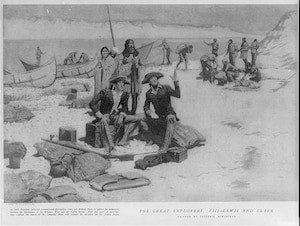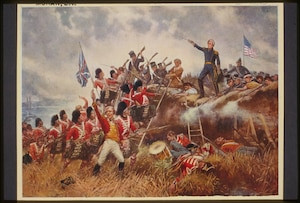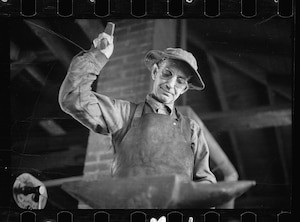DLA Troop Support, while officially marking its 60th anniversary in October, boasts a heritage stretching back over two centuries. This enduring legacy of supporting the warfighter and government initiatives is deeply rooted in the early 19th century, showcasing a commitment to national service that began well before the agency’s formal establishment. One pivotal moment in this history is the American Civil War, where the organization, in its earlier form as the Schuylkill Arsenal, played a crucial role in equipping the Union Army, most notably through the large-scale provision of Civil War Union Uniforms.
Established in the early 1800s in Philadelphia, Pennsylvania, the Schuylkill Arsenal quickly became a cornerstone of national defense. As only the third federal facility in the young United States, its initial purpose was to store ammunition and military supplies. However, its role soon expanded to encompass a wider range of logistical support, impacting key moments in American history.
One of the earliest significant contributions of the Schuylkill Arsenal was equipping the famed “Corps of Discovery” led by Merriweather Lewis and William Clark in 1803. As these explorers embarked on their mission to chart the lands acquired in the Louisiana Purchase, the arsenal provided them with $2,000 worth of essential supplies, including clothing, blankets, tents, and equipment. This early support highlights the arsenal’s foundational role in enabling national expansion and exploration.
During the War of 1812, the Schuylkill Arsenal once again stepped up to meet the nation’s needs, supplying the U.S. military with crucial guns, ammunition, clothing, and textiles. Following this conflict, the arsenal transitioned its focus, concentrating on the manufacture, storage, and distribution of clothing and textile materials, setting the stage for its pivotal role in the Civil War.
The onset of the American Civil War in 1861 brought unprecedented demands on the Schuylkill Arsenal. With tensions escalating and the nation divided, the arsenal became a hub of activity, tasked with outfitting the rapidly expanding Union Army. To meet this immense challenge, approximately 10,000 tailors and seamstresses in the Philadelphia area were employed, many working from their homes, to produce the vast quantities of uniforms, blankets, tents, and bedding required for the Union troops.
The iconic blue Civil War Union uniforms, a symbol of the United States and its fight to preserve the nation, were produced in large part thanks to the efforts of the Schuylkill Arsenal. These uniforms were not merely garments; they represented identity, belonging, and readiness for the Union soldiers. The arsenal’s ability to mobilize civilian garment workers and manage the large-scale production of these uniforms was essential to the Union war effort. This massive undertaking underscored the critical importance of logistical support in military operations, a principle that remains central to DLA Troop Support’s mission today.
As the U.S. entered World War I in 1918, the Schuylkill Arsenal, then operating as the Philadelphia Quartermaster Depot after relocating and expanding, once again became a critical supplier. The mobilization of two million service members within a year placed immense pressure on the depot, highlighting the need for even larger facilities and more efficient operations.
During the Great Depression in the 1930s, the Philadelphia Quartermaster Depot shifted its focus to providing work uniforms for the 600,000 personnel of the Civilian Conservation Corps, contributing to President Roosevelt’s New Deal initiatives. This adaptability demonstrated the depot’s versatility and its capacity to support national needs beyond military conflicts.
World War II brought unprecedented demands, and the Philadelphia Quartermaster Depot played a monumental role, managing approximately $5 billion in contracts for military uniforms and equipment as the Army expanded to over 8 million soldiers. This massive logistical undertaking solidified the depot’s place as a vital component of the US military supply chain.
From its origins as the Schuylkill Arsenal to its current form as DLA Troop Support, the organization has consistently adapted to meet the evolving needs of the nation. Its early contributions, particularly the crucial supply of Civil War Union uniforms, laid the foundation for a long and distinguished history of service. Today, DLA Troop Support continues to innovate and optimize global supply chain solutions, supporting warfighters and partners worldwide, building upon a legacy that began in the early days of the United States.


 Drawing depicting Merriweather Lewis and William Clark at the mouth of the Columbia River as they explored land west of the Mississippi. The Schuylkill Arsenal provided the expedition with ,000 of clothing, blankets, tents and equipment.
Drawing depicting Merriweather Lewis and William Clark at the mouth of the Columbia River as they explored land west of the Mississippi. The Schuylkill Arsenal provided the expedition with ,000 of clothing, blankets, tents and equipment.  Painting depicting the Battle of New Orleans during the War of 1812. During the war, the Schuylkill Arsenal provided the U.S. Army with guns, ammunition and textiles.
Painting depicting the Battle of New Orleans during the War of 1812. During the war, the Schuylkill Arsenal provided the U.S. Army with guns, ammunition and textiles.  A Blacksmith from Prince Georges County, Md., performs his trade as part of the Civilian Conservation Corps. in the 1930s the Philadelphia Quartermaster Depot manufactured working clothes for 600,000 members of the Corps.
A Blacksmith from Prince Georges County, Md., performs his trade as part of the Civilian Conservation Corps. in the 1930s the Philadelphia Quartermaster Depot manufactured working clothes for 600,000 members of the Corps.